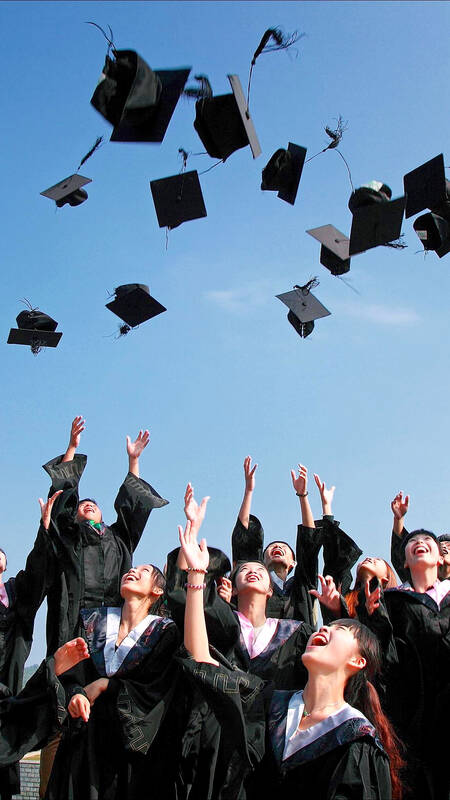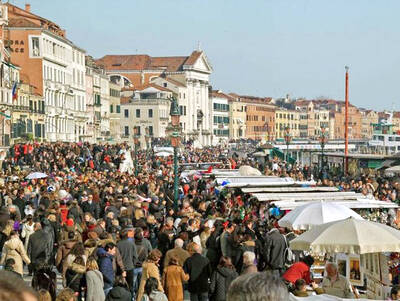對話 Dialogue
清清:這樣好看!就這樣吧!
Qīngqing: Zhèyàng hǎokàn! Jiù zhèyàng ba!

Photo courtesy of Piqsels 照片:Piqsels提供
華華:看你弄了好久了,你在忙什麼?
Huáhua: Kàn nǐ nòngle hǎojiǔle, nǐ zài máng shénme?
清清:我堂哥跟表妹畢業了,而且成績都很好,只是堂哥是研究所,表妹是大學。剛好他們念的都是我的母校,家族好多人都去參加他們的畢業典禮,我在把那天的照片做成影片,要分享給大家。
Qīngqing: Wǒ tánggē gēn biǎomèi bìyèle, érqiě chéngjī dōu hěn hǎo, zhǐshì tánggē shì yánjiùsuǒ, biǎomèi shì dàxué. Gānghǎo tāmen niàn de dōu shì wǒ de mǔxiào, jiāzú hǎoduō rén dōu qù cānjiā tāmen de bìyè diǎnlǐ, wǒ zài bǎ nàtiān de zhàopiàn zuòchéng yǐngpiàn, yào fēnxiǎng gěi dàjiā.
華華:哇!你們是校友咧!恭喜他們!不過,畢業以後,他們有什麼打算呢?
Huáhua: Wa! Nǐmen shì xiàoyǒu lie! Gōngxǐ tāmen! Búguò, bìyè yǐhòu, tāmen yǒu shénme dǎsuàn ne?
清清:我堂哥找到了在新竹科學園區的工作,我叔叔很高興。表妹申請到了美國的學校,要出國留學,我姑姑雖然很捨不得,但也支持她出去闖一闖。
Qīngqing: Wǒ tánggē zhǎodàole zài Xīnzhú Kēxué Yuánqū de gōngzuò, wǒ shúshu hěn gāoxìng. Biǎomèi shēnqǐng dàole Měiguó de xuéxiào, yào chūguó liúxué, wǒ gūgu suīrán hěn shěbùdé, dàn yě zhīchí tā chūqù chuǎng yì chuǎng.
華華:聽起來很不錯,不像有些人,畢業就是失業,不知道該高興還是難過。
Huáhua: Tīng qǐlái hěn búcuò, búxiàng yǒuxiē rén, bìyè jiùshì shīyè, bù zhīdào gāi gāoxìng háishì nánguò.
清清:如果一時真的找不到合適的工作,就先去學點一技之長吧!反正年輕有的是機會。
Qīngqing: Rúguǒ yìshí zhēnde zhǎobúdào héshì de gōngzuò, jiù xiān qù xué diǎn yíjìzhīcháng ba, fǎnzhèng niánqīng yǒudeshì jīhuì.
華華:對啊!現在的人不都喜歡斜槓嗎?多會一項技能,就多一條發展的路,有能力、不怕吃苦,總會找到好工作的。
Huáhua: Duì a! Xiànzài de rén bù dōu xǐhuān xiégàng ma? Duō huì yí xiàng jìnéng, jiù duō yì tiáo fāzhǎn de lù, yǒu nénglì, búpà chīkǔ, zǒng huì zhǎodào hǎo gōngzuò de.
翻譯 Translation
Qingqing: That looks nice! Let’s go with that!
Huahua: You’ve been at it for quite a while. What are you busy with?
Qingqing: My cousins graduated, and they both did very well. One of my cousins is in graduate school, and the other is in university. They both happen to be graduates of my alma mater. Many family members went to their graduation ceremonies, so I’m making a video with the photos from that day to share with everyone.
Huahua: Wow! You’re all alumni! Congratulations to them! But what are their plans after graduation?
Qingqing: My cousin found a job in the Hsinchu Science Park, and my uncle is very happy. The other cousin applied to a university in the United States for further studies, planning to study abroad. Although my aunt is reluctant to let her go, she is also supportive of her going out and exploring.
Huahua: Sounds great, unlike some people who end up unemployed after graduation, not knowing whether to be happy or sad.
Qingqing: If they can’t find a suitable job right away, they can always learn a new skill. After all, being young means having plenty of opportunities.
Huahua: Exactly! Nowadays, people like to have multiple skills, right? The more skills you have, the more paths you have for development. With skills and perseverance, they are sure to find a good job.
生詞 Vocabulary
1. 畢業 (bìyè) graduate
2. 堂哥 (tánggē) cousin: the son of one’s father’s brother (older than oneself)
3. 表妹 (biǎomèi) cousin: a female who is younger than oneself, from the paternal aunt’s or maternal family’s side)
4. 母校 (mǔxiào) alma mater
5. 校友 (xiàoyǒu) alumni
6. 留學 (liúxué) study abroad
7. 一技之長 (yíjìzhīcháng) [phrase] a specialized skill, a particular skill
8. 斜槓 (xiégàng) multiple skills
教材音檔 Audio Files
國立清華大學華語中心提供
By National Tsing Hua University Chinese Language Center:

Photographer Franziska Stuenkel likes to take spontaneous urban shots, so she needs a nimble camera that is ready to go when inspiration strikes: her German-made Leica M11. “I have to be very quick and discreet,” said the Berlin-based artist who captures reflections of people walking past windows, their contours merging with the shapes behind the glass. Stuenkel’s compact Leica is the perfect camera for the job, the 51-year-old told AFP. Famous for its pocket-sized and retro-style devices, the Leica brand is celebrating a milestone as it marks 100 years since its first commercial camera was presented to the public. The

As global travel rebounds following the COVID-19 pa ndemic, the longstanding issue of overtourism has returned stronger than ever. Throughout 2024, numerous popular destinations worldwide struggled with tourist numbers that far exceeded their infrastructural and environmental capacities. Not only does this surge congest streets and pollute landscapes, but it also endangers cultural sites and disrupts the daily lives of residents. In response to the growing problem of “overtourism,” various nations have adopted diverse strategies, some of which have sparked controversy. Venice, Italy, has not hesitated to take bold action; since 2024, the city has implemented one of the

A: This year’s Met Gala, the Metropolitan Museum of Art’s fundraiser, is coming on the first Monday of May. B: The event, featuring a lineup of stars, is often praised as fashion’s Oscars. A: Some Asian stars, like Taiwanese pop diva Jolin Tsai, have also attended in the past. B: What are the theme and dress code this time? A: This year’s theme is “Superfine: Tailoring Black Style.” It’s the first time since 2003 that the theme is focusing on menswear. The dress code is “Tailored for You.” A: 哇今年的大都會博物館慈善晚宴「Met Gala」,即將在5月第一個星期一登場。 B: 這可是被譽為「時尚奧斯卡」的年度盛事,許多巨星都會參加耶。 A:

1. 錢已經用一半了。 ˇ Half of the money is gone. χ Half of the money are gone. 註:Half of ... 作主詞時,動詞與介詞 of 後面的名詞或代名詞相一致,即名詞或代名詞是單數時,動詞該是單數;若為複數,則動詞也該是複數,例如: Half of the story is interesting. Half of the stories are interesting. Half of it is interesting. Half of them are interesting. 2. 許多人走過這條路。 ˇ Many a man has travelled this road. χ Many a man have travelled this road. 註:many a 意義上雖然作 many 解,但後面應跟單數名詞,動詞也用單數形式。 3. 敵人被迫投降。 ˇ The enemy were forced to surrender. χ The enemy was forced to surrender. 註:enemy 作為總稱,前面須有定冠詞,用作句子主詞時,動詞通常用複數形。類似的情形如 talent: Taiwan is known for its semiconductor technology and is actively working to attract and retain global talent. 4. 他倆誰都不該責怪。 ˇ Neither of them is to blame. χ